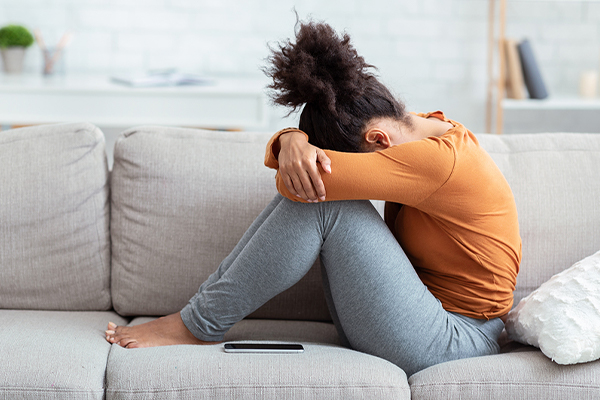We all know what depression looks like. Right?
It’s that person who seems sad and withdrawn most of the time. Or that person who just never seems to want to do anything.
It can’t be that person who’s successful at work. Or who’s so funny during happy hour. Or who just does so much for other people. That person’s happy. Right?
Actually—“The way people struggle with depression, it’s not always obvious to other people,” said Dr. Amy House, a psychologist with Augusta University Health.
“Someone might function perfectly fine at work or at events, and seem happy and social. But it may actually be that they really struggle with depressed mood, are really lonely and not well connected to other people with they go home. They may even have suicidal thinking. There could be a whole range that isn’t obvious to you.
“There are people with clinically significant depression who in a certain context don’t necessarily look like people who are suffering.”
Not-So-Obvious Signs
The way depression works, there can be certain contexts like work where people don’t experience or feel it as much because they are busy or engaged, said House. Not that they are masking or hiding depression, but as people, we all have shifts and changes in our feelings and moods throughout the day.
In general, many people with depression or psychiatric disorders go undiagnosed. Symptoms in the person who is visibly depressed and the person who isn’t are actually the same; the difference is, that in the latter case, only the person experiencing depression actually knows that he or she is having problems.
These include:
- Depressed mood more often than not
- Low interest and low pleasure in activities or things that used to give you joy
- Sleep problems, like sleeping too much or not sleeping
- Loss of appetite
- Feelings of worthlessness or being down on yourself
- Not being able to concentrate or make decisions
- Thinking about suicide
If you think someone you know might be depressed—even if he or she doesn’t have the obvious signs—it’s always OK to show that you care, says House, even if it might feel awkward. “You can say, ‘Hey, I’m noticing this about you. Do you want to talk about it?’ or “Are you OK? Is there something I can do to help?’ And if you’re really concerned, encourage them to speak to their doctor or seek professional help.”
One More Thing
At the same time—despite what social media or TV might be telling us—none of us are happy all the time. “My stance is that we live in a culture that sells us a false narrative that if you’re not happy, something is wrong,” said House. “If we buy into that narrative, it can create all kinds of problems for us, and we start to wonder, ‘If I’m not happy all the time, what’s wrong with me? Maybe I need to do something, like take a medication or buy a certain product or change my marriage.’”
Feeling sad or anxious or frustrated doesn’t mean that there’s necessarily something wrong. It may be a very normal and logical way to react to what’s going on around you. In fact, worrying too much about why you’re feeling a certain way can have the effect of causing depression, said House. “So it’s helpful to create that space and allow yourself to have feelings, and to explore that with curiosity and kindness toward yourself, without needing to fix it,” she said.
For example, if someone is feeling down or sad about social distancing and COVID-19, give yourself permission to feel that way. Soothe and be kind to yourself, whether it’s through a pampering bath, long walks, time journaling or reading books, planning ways to safely connect with friends, doing that special hobby you never used to have time for, or watching an upbeat movie. “In other words, pivot toward what matters to you,” said House.
Realize too that anxiety has purpose sometimes. “It can help you prepare and plan, for example,” said House. “There’s also a lot that makes sense about emotions and emotional responses and understanding how it makes sense can be helpful.”
“People have depression for all kinds of reasons and for no obvious reason,” said House. “If there’s significant impairment in function, or if anyone is thinking suicidal thoughts, definitely seek professional help. At the same time, keep in mind that everyone needs the space to be vulnerable.”





